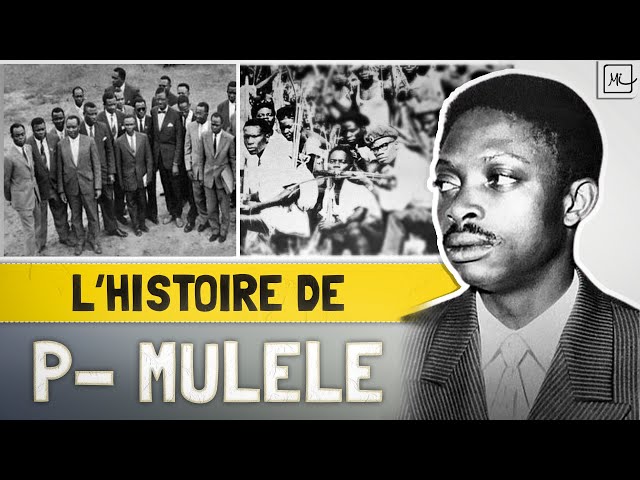July 3, 2025politics#review

Pierre Mulele: Revolutionary or Ruthless Manipulator?
While history books often paint Pierre Mulele as a revolutionary figure who stood against colonial and post-independence injustices, those who lived through the Mulele rebellion in the eastern parts of Congo, especially the Banyamulenge people, remember a very different legacy.
Pierre Mulele is frequently praised for his ideological commitment to Marxism and his dreams of creating a new society. His trip to China and time in Egypt are often highlighted as proof of his deep political insight and dedication. Yet, these same actions led to the brutal mobilization of marginalized youth and rural populations, whom he manipulated not only ideologically, but also emotionally, promising them a second independence. In reality, he unleashed terror on countless communities.
In places like Mulenge and throughout eastern Congo, Mulele’s movement became synonymous with destruction, betrayal, and bloodshed. While he claimed to fight for the oppressed, his rebellion was deeply selective and ethnically charged. As soon as his militia gained strength, they turned against groups that did not belong to his ethnic circle, notably targeting the Banyamulenge. His fighters not only murdered innocent civilians, but they also looted cattle and burned entire villages. These were not acts of revolution. They were calculated moves to gain control by inflicting fear, division, and starvation.
Testimonies from survivors, like that of Elisha Kagwati, recount how Mulele's supporters, often referred to as Abateriteri, committed atrocities in the name of liberation. Kagwati’s own grandfather, Ncogoza, was killed while peacefully herding cows. Such stories are not rare. Entire Banyamulenge communities were uprooted and terrorized by rebel forces who claimed to be liberators but operated as oppressors.
The Banyamulenge initially joined the rebellion, believing in the idea of equality and justice. However, when their cows were stolen and their people killed by the very movement they had supported, they realized they had been deceived. They chose to defend themselves and their way of life. In the end, they sided with the government forces to defeat the Mulele insurrection, not out of loyalty to the state, but out of necessity to protect their people from further annihilation.
At first, he killed members of the Banyamulenge and then manipulated the rest by lying to them, promising freedom just to save themselves. Only a few youths later joined the rebellion under this false hope. Their initial support was not genuine belief in equality and justice but a desperate response to deception. When the rebellion's true nature became clear, the Banyamulenge chose to protect their community. Unlike what is said, they were never truly aligned with the rebellion’s ideals and sided with government forces mainly to survive and resist further betrayal and violence.
Mulele's ideology claimed to fight exploitation, yet his rebellion depended on looting, fear, and ethnic exclusion. He promised dignity, but delivered devastation. His claims of mystic power and his cult-like following only deepened the tragedy. Rather than building hospitals, schools, or roads, his rebellion destroyed them. What was left behind was not a liberated people, but a traumatized and deeply divided nation.
Even after his death in 1968, Mulele’s influence remained a source of fear in the east. The so-called “Mulelist” rebellions carried his name but none of his supposed ideals. They continued the pattern of ethnic targeting and destruction, particularly against the Banyamulenge, reinforcing the truth that his rebellion was less about revolution and more about control.
Pierre Mulele may have symbolized the frustrations of a post-independence Congo, but his legacy for the Banyamulenge is not one of hope. It is one of betrayal, of broken families, and of a haunting question: how could someone who spoke so much of justice unleash so much injustice?
To call Mulele a hero is to ignore the voices of those who suffered at his hands. Real revolution uplifts the oppressed without creating new victims. Mulele failed that test. The Banyamulenge are still rising from the ruins left behind by his ambition.